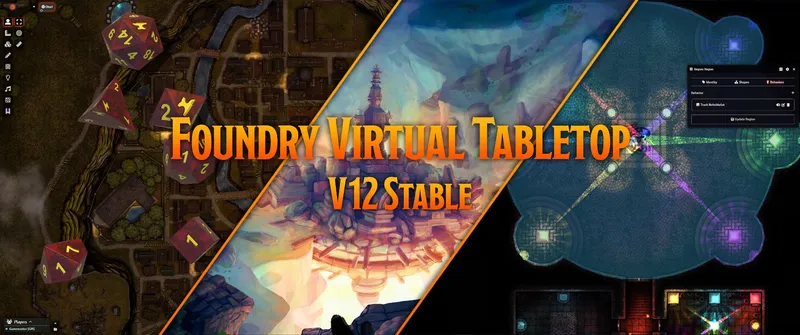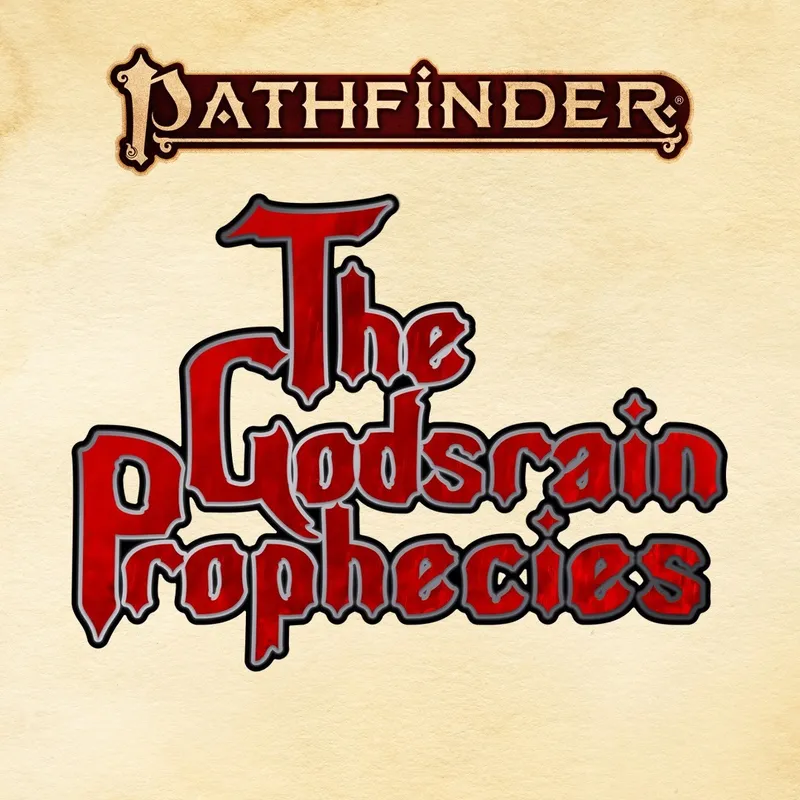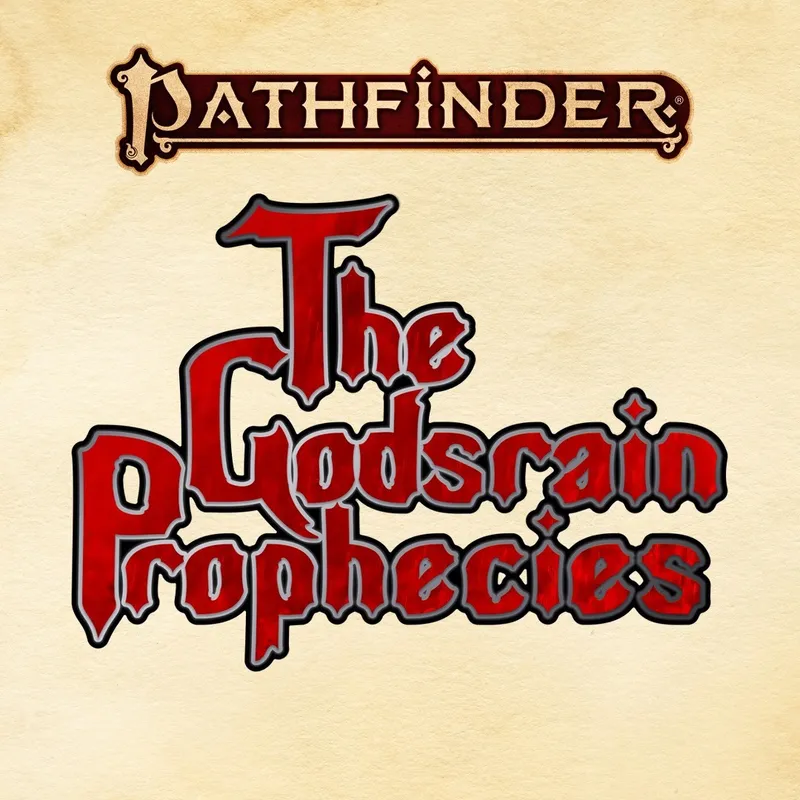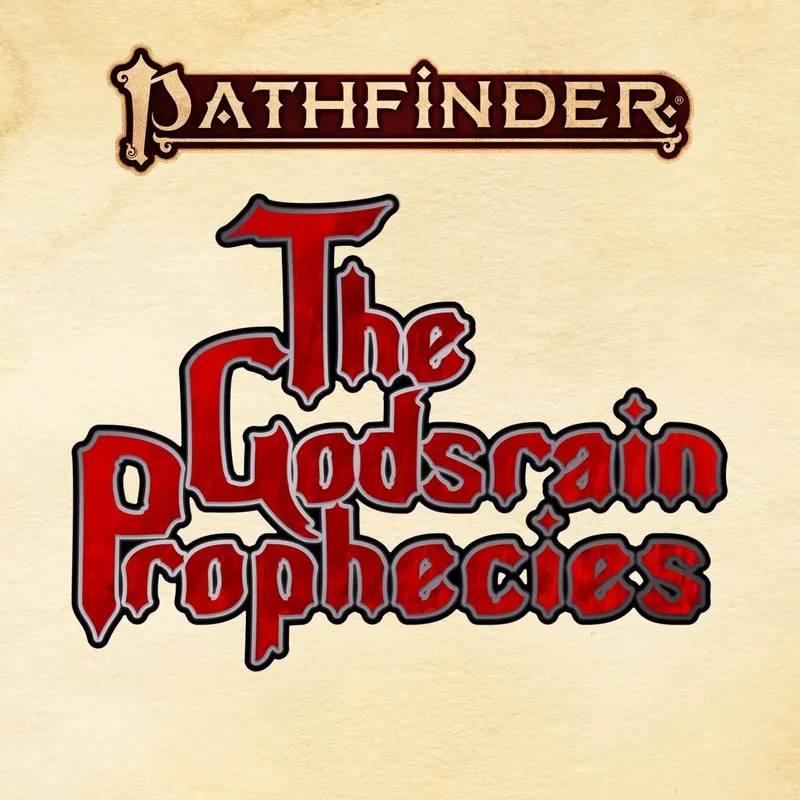Опубліковано 09 листопада 2023 р.
Автор Deniz Köse
The Godsrain Prophecies Part Six
As I continue reading through the Godsrain “prophecies,” I have begun to develop a troubling new theory about their origin. I will admit up front that this idea may seem more in line with one of those Another Absalom tales of spies and skullduggery than a scholarly review (though I have always believed that those tales should be studied for their ability to keep the reader’s attention, something we researchers often do not do as successfully as we would like!), but I’ve noticed that several of the prophecies seem to strike at the core of what many think about the divine. This is not to say that gods cannot die, or falter, or fail in some way, but the more I read these documents, the more I can imagine negative outcomes that I might once have dismissed as distant possibilities. What if this is deliberate?
Perhaps the author of these works is no prophet at all, but someone who seeks to weaken what we understand of divinity. I am not certain who or what would seek that as an outcome, but any entity that benefits from faltering faith is one that cannot have the best interests of Golarion at heart. Still, if I am being candid, the thought of some mysterious villain appeals to me more than it probably should. Perhaps I simply wish to find a reason for these prophecies outside of any potential truth I might find in their pages. Or perhaps I have stumbled onto a workable theory. I will note the thought, but only as one of many I might bring to my Lady. False comfort can too often be found within visions of conspiracy.
–Yivali, Apprentice Researcher for the Lady of Graves
The Death of Nethys
Mind. Matter. Spirit. Life. Four essences. Four building blocks. Four cornerstones whose intersections shape the way that magic works. And in that four, two pairs that are too different to be joined together. Matter never blends with Spirit; Mind and Life remain apart. Nethys knows the truth of this, but never quite believes it fully. (Is he not the proof that there is power in duality?)
As the centuries progress, he keeps returning to this quandary, tells himself that he alone can meld the two opposing pairs. He can be the font of knowledge. He can give the world new magic. He can take the contradictions, put them through a transformation. He can start two new traditions. Mind and Body. Heart and Soul.
Does he succeed? Perhaps he does. Perhaps he stands awash with pride, his fingers trembling at the feeling, ready to share something of the magic he has wrought. But if he feels triumphant, it is only for a moment—a breath of jubilation as he soaks himself in magic, followed by a cry of horror as his body falls apart. Nethys, by sheer will and power, holds himself together briefly, fractures crawling down his arms, breaking him to pieces like a chunk of splintered glass. He remains alive just long enough to see the power of his folly, spreading from his fingers to the very building blocks of magic, tearing them asunder as his body turns to ash.
In an instant, magic changes—bends and rips and stretches thin, settling like a shredded cloth pulled tight across the world. Where it is torn, all magic ceases. Long-held items lose their power. Spells are nothing more than words. Spellcasters within these hollows lose all tether to their magic, even if they only cross the boundary in the aftermath. Some regain their skills with time, but others never quite recover, every magic word they utter turned to dust between their lips. Some don’t even make it that far, dying when the magic ends, falling from the skies above, losing shields that keep them safe, gulping down a healing potion turned to flavored water.
At first, the new uncertainty inspires mass devotion, but there is little solace from the other gods. Pharasma asks for a report. Irori swears to make it right. Their followers still cannot cast a single spell within the hollows. And those who lose the taste for magic, prayers dying in their mouth? They do not seem to gain a thing from all their dedication.
For those who never cared for magic, hollows are a place of refuge, leveling the playing field in favor of the fist and sword. Many flock who follow Nethys, loyal to his knowledge still, believing this to be some test that leads them to a new reward.
Many on Golarion relocate from their hollowed homes, fearing what it means to lose the magic in their lives. But travel is no easy thing, not even with the scout and map and herbal kits (now free of magical augmentations) that have become requirements for any trip outside. Rumors abound of hidden dangers scattered through the Great Beyond: places where the magic varies, strong one day and weak the next, turning one night’s cantrip to the morning’s deadly strike; villages consumed by all the magic stolen from the world, drowning in a power they have no way to unmake.
![[nethys.webp]]
Magic has never been among my preferred subjects to study, but I now wish I’d learned more of it! It would help me to properly evaluate what, if anything, within this prophecy is truly feasible. Could one death (even the death of a god) create this level of chaos within such a fundamental part of life? This prophecy seems to indicate that magic is forever changed by Nethys’s actions, but even a disaster of the magnitude described seems unlikely to change fundamental principles of magic (a statement I would be much more convinced of were I sure that I fully understood them). While I doubt that this prophecy would come true, I am now curious if there are any projects that Nethys has undertaken that might lead to his attempting something on this scale. Perhaps I judged too quickly, and these are less dastardly plot than desperate warning? I need more information to be sure.
About the Author
Erin Roberts has been thrilled to be able to contribute a few small threads to the fabric of Golarion in the pages of books like Lost Omens Firebrands, Lost Omens Highhelm, and Lost Omens Travel Guide. In addition to her work for Paizo, she freelances across the TTRPG world (and was selected as a Diana Jones Award Emerging Designer Program Winner in 2023), has had fiction published in magazines including Asimov’s, Clarkesworld, and The Dark, and talks about writing every week on the Writing Excuses podcast. Catch up with her latest at linktr.ee/erinroberts.
Автор Deniz Köse
← Назад у блоґ





